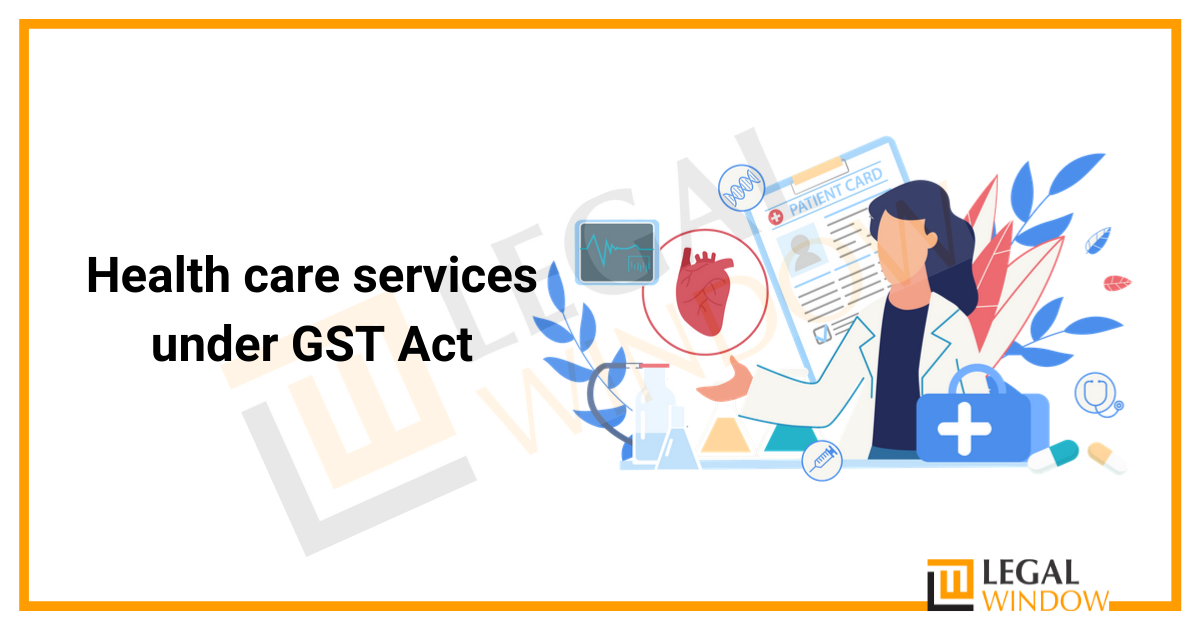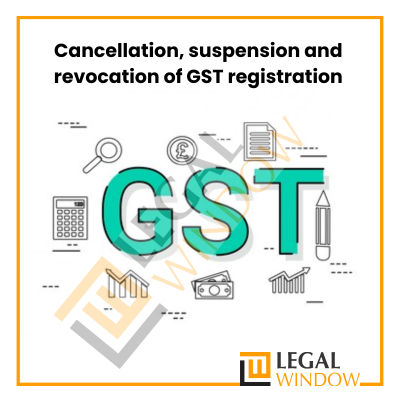
There is a saying that ‘Health is Wealth,’ which means that when a person maintains good health, everything else falls into place. Understanding the importance of health and the services provided by the health service sector, the Central Government exempted health care services from the levy of GST, making health care services more affordable to the general public.
A person running a medical shop to a person running a super speciality hospital, RMP doctor to highly qualified medical professionals and consisting of many systems to treat different ailments, blood banks to the ambulance, ancient Ayurveda to Allopathic medicine the modern science in treating patients, undertaking the sale of tablets to Complicated Surgeries are all examples of activities in the health care sector.
| Table of Contents |
What is the GST Definition of Healthcare Services?
Health care services under GST means any service offered by way of Diagnosis or Treatment or Care for any type of illness, deformity, injury, abnormality, or pregnancy in any recognized system of medicines in India, as well as transportation services of the patient to and from a clinical establishment, but it does not include hair transplant or cosmetic or plastic surgery, except when undertaken to restore or improve appearance.’
What is the GST Rate for Healthcare Services?
- To create a uniform tax rate across the country, the GST Council applied the GST Rate for goods and services. Following the implementation of the GST, the Council linked all services to the Services Accounting Code (SAC Code) in order to classify them.
- The SAC Codes are used by the service tax department to charge tax on the services provided. GST on goods, on the other hand, is based on the HSN code, an internationally accepted classification system for goods in the course of import and export. GST rates for services fall into one of five categories: 0%, 5%, 12%, 18%, or 28%. Many medical, hospital, and doctor services are GST exempt.
- GST is not levied on health care services provided by a clinical establishment, an authorised medical practitioner, or paramedics. A veterinary clinic provides services related to animal health care.
- Services provided by blood banks in the preservation of stem cells, as well as any other function related to such preservation, are exempt from GST. In addition, services provided by an ambulance for the transportation of a patient are exempt from GST. The GST rate for services includes a catch-all clause that states that if a service is not specifically exempt from GST or the GST rate for the service is not explicitly provided for, then GST will be charged at the rate of 18 per cent GST. As a result, some of the above-mentioned services that are not provided by a clinical establishment, an authorised medical practitioner, or paramedics may be subject to GST.
Exemptions from GST for Healthcare Services
According to Notification No. 12/2017-Central Tax, the following healthcare services are exempt from GST:
- No.46- A veterinary clinic’s services are related to the health of animals or birds.
- No. 73- Services provided by cord blood to preserve stem cells or any other service related to such preservation
- No.74- Transportation of patients in an ambulance is one of the services provided.
According to Notification No. 9/2017-Integrated Tax, healthcare services are exempt from GST in the following ways:
- No.48- Services provided by veterinarians
- No.76-Cord blood banks provide services.
- No.77- Ambulance services
- No. 77-Medical tests are performed in a clinical setting.
- No. 78-Services provided to hospitals for the treatment and disposal of bio-medical waste are not GST taxable.
- No.77-Room rent charged to patients is exempt from GST, but if the hospital rents space for a chemist shop or provides rooms on rent to caregivers, it is subject to GST.
What is the Scope of Healthcare Service Supply?
Healthcare services are the most visible component of the composite supply in the healthcare industry. Medicines, implants, and food supply, on the other hand, are secondary to it and do not become the primary supply in and of themselves.
The taxability of a composite supply is based on the quantity of primary supply. In the case of healthcare services, the principal supply, i.e. health services, is subject to Nil rate taxation, and thus Nil rate taxation will be applied to the composite supply of health care services and supply of implants and medicines to IPD.
Concerning the supply of drugs/medicines that is taxable under GST, most medicines are taxed at a rate of 5%, while certain medications are taxed at rates ranging from 12% to 18%, depending on the HSN of the medicines. Similarly, consumables, injectables, and implants are included.
Conclusion
Because GST does not apply to healthcare services, service providers are not eligible for credit for input taxes paid. Under the current GST regime, the net impact of revised tax rates on hospital inputs (goods and services) has increased significantly. The health industry has advocated for a zero-rate goods and services tax (GST) on healthcare services as well as health insurance premiums. According to the Association of Indian Industry, because GST does not apply to healthcare services, service providers are not eligible to receive credit for input taxes paid. Health care is the most important aspect of people’s lives. As a result, in many cases, the majority of healthcare services are exempt from the current GST.
However, the recent notices issued to hospitals, as well as the taxmen’s intention to levy a tax on implants or medicines, etc., may raise the cost of medication, which would be contrary to the interpretation of GST law. As a result, healthcare services should be exempt from GST.
CA Pulkit Goyal, is a fellow member of the Institute of Chartered Accountants of India (ICAI) having 10 years of experience in the profession of Chartered Accountancy and thorough understanding of the corporate as well as non-corporate entities taxation system. His core area of practice is foreign company taxation which has given him an edge in analytical thinking & executing assignments with a unique perspective. He has worked as a consultant with professionally managed corporates. He has experience of writing in different areas and keep at pace with the latest changes and analyze the different implications of various provisions of the act.
Categories
- Agreement Drafting (23)
- Annual Compliance (11)
- Change in Business (36)
- Company Law (147)
- Compliance (88)
- Digital Banking (3)
- Drug License (3)
- FEMA (17)
- Finance Company (42)
- Foreign Taxation (6)
- FSSAI License/Registration (14)
- GST (117)
- Hallmark Registration (1)
- Income Tax (199)
- Latest News (34)
- Miscellaneous (164)
- NBFC Registration (8)
- NGO (14)
- SEBI Registration (6)
- Section 8 Company (7)
- Start and manage a business (20)
- Startup/ Registration (126)
- Trademark Registration/IPR (40)
Recent Posts
- Understanding the provisions of GST Audit and Adjudication April 20, 2024
- April, 2024 Tax Compliance Tracker: Income Tax & GST Deadlines April 18, 2024
- Managing Director & Whole Time Director in a Private Limited Company April 17, 2024
About us
LegalWindow.in is a professional technology driven platform of multidisciplined experts like CA/CS/Lawyers spanning with an aim to provide concrete solution to individuals, start-ups and other business organisation by maximising their growth at an affordable cost.








